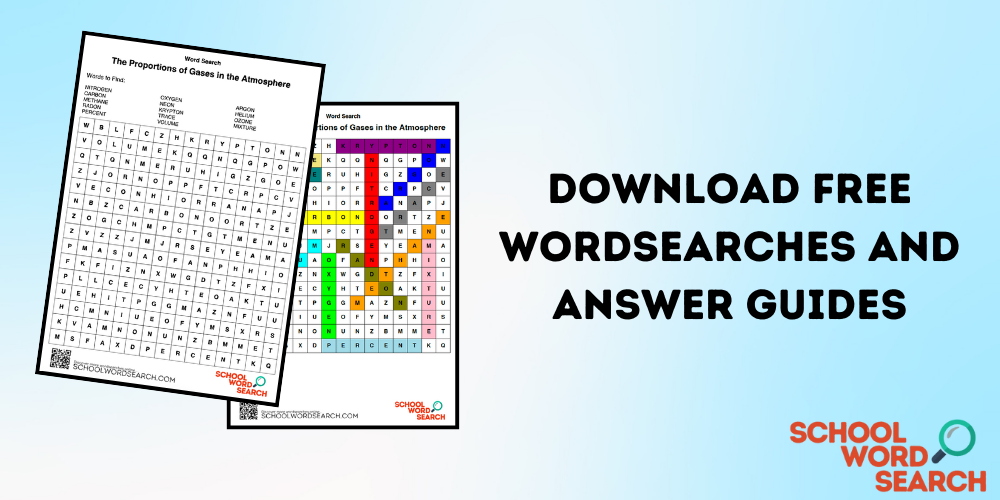Welcome to the GCSE Psychology Wordsearches page! Here, you’ll find a variety of engaging and educational wordsearch puzzles designed to help students reinforce their vocabulary and understanding of key concepts within Psychology! Here, you can find links to all wordsearches and an option to search for a wordsearch if you know the topic by name
Why Use our GCSE Wordsearches?
Reinforce Learning: Our wordsearches are an excellent way for students to review and retain important terms and concepts from their Psychology studies.
Engage Students: Wordsearches offer a fun and interactive method for learning, making it easier to capture students’ interest and keep them engaged.
Flexible Use: These puzzles can be used in the classroom as part of your lesson plans, for homework assignments, or as additional practice at home.
Aligned with Curriculum: Each wordsearch is carefully crafted to align with educational standards, ensuring they support your teaching objectives.
How to Use This Page
Browse the Collection: Scroll through our list of GCSE Psychology wordsearches. Each puzzle covers different topics within GCSE Psychology, providing a comprehensive resource for your needs.
Download and Print: Click on the wordsearch title that interests you to download a high-quality PDF version. All our wordsearches are free and easy to print.
Incorporate into Lessons: Use these wordsearches to supplement your teaching materials, reinforce key terms, and provide students with an enjoyable learning activity.
All GCSE Psychology wordsearches
GCSE Psychology – Memory Processes
GCSE Psychology – Episodic, Semantic, and Procedural Memory
GCSE Psychology – Multi-Store Model of Memory
GCSE Psychology – Reconstructive Memory
GCSE Psychology – Perception: Sensation vs. Perception
GCSE Psychology – Visual Cues and Depth Perception
GCSE Psychology – Visual Illusions and Perceptual Set
GCSE Psychology – Piaget – Stages of Development
GCSE Psychology – Brain Development in Early Childhood
GCSE Psychology – Mindset Theory: Fixed vs. Growth Mindset
GCSE Psychology – Learning Styles: Visualisers and Verbalisers
GCSE Psychology – Research Methods in Psychology
GCSE Psychology – Variables in Psychological Research
GCSE Psychology – Sampling Methods in Psychology
GCSE Psychology – Types of Experiments: Lab, Field, and Natural
GCSE Psychology – Ethical Considerations in Psychology
GCSE Psychology – Data Handling in Psychological Research
GCSE Psychology – Descriptive Statistics: Mean, Median, Mode
GCSE Psychology – Correlation and Scatter Diagrams
GCSE Psychology – Social Influence: Conformity and Obedience
GCSE Psychology – Bystander Effect and Prosocial Behavior
GCSE Psychology – Crowd Behavior: Social Loafing and Deindividuation
GCSE Psychology – Language and Thought: Sapir-Whorf Hypothesis
GCSE Psychology – Eye Contact and Body Language
GCSE Psychology – Animal vs. Human Communication
GCSE Psychology – Structure of the Nervous System
GCSE Psychology – Neuron Structure and Synaptic Transmission
GCSE Psychology – Localization of Function in the Brain
GCSE Psychology – Neuroplasticity and Learning
GCSE Psychology – Psychological Disorders: Depression and Addiction
GCSE Psychology – Biological Theories of Depression
GCSE Psychology – Treatments for Depression: CBT and Medication
GCSE Psychology – Addiction: Causes and Treatments
GCSE Psychology – Cognitive Neuroscience: Brain Imaging Techniques
GCSE Psychology – Psychological Research Ethics
GCSE Psychology – Application of Psychology in Everyday Life
GCSE Psychology – Cultural and Social Diversity in Psychology
GCSE Psychology – Development of Psychological Theories Over Time
GCSE Psychology – The Role of the Brain in Behavior and Cognition
GCSE Psychology – Psychological Theories of Depression
